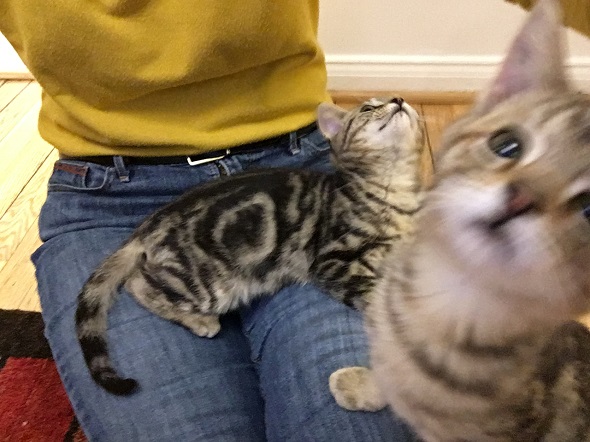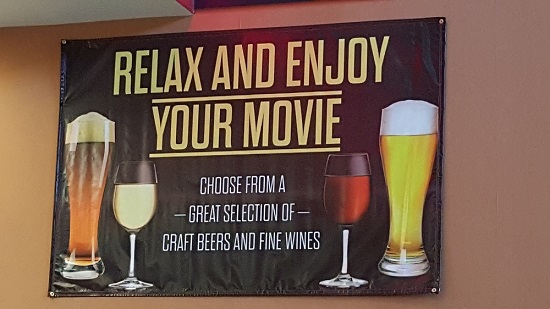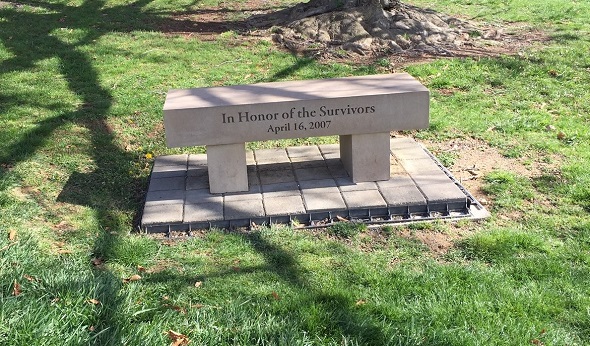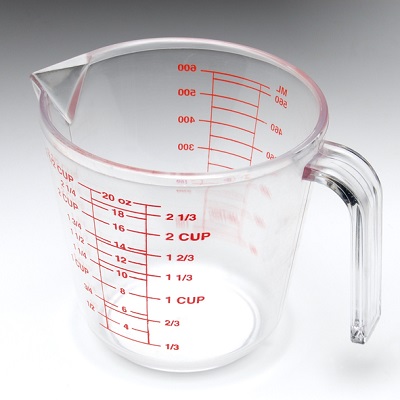Morning
I get up at a time that is healthful for me, either by natural awakening or by setting an alarm clock. Sleep disorders can precede, co-occur with, or result from substance use, so I give my sleep-wake cycle tender, loving care.
I take substances used as medications as directed that have been prescribed to me by health care professionals.
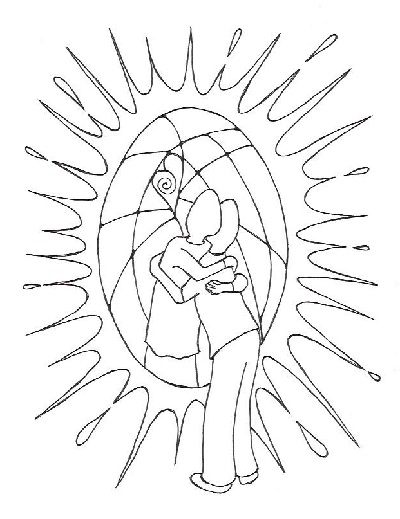 I take substances that are legal using harm reduction. For me, that means preparing one pot of strong English Breakfast tea in the morning. Tea, coffee, and other beverages can contain the stimulant caffeine, a legal, mood-enhancing drug. I find the comfort of a hot beverage and the rousing effects of the drug pleasurable and rewarding as I write each morning. I limit my intake, avoid caffeine intoxication, and consciously use caffeine in moderation.
I take substances that are legal using harm reduction. For me, that means preparing one pot of strong English Breakfast tea in the morning. Tea, coffee, and other beverages can contain the stimulant caffeine, a legal, mood-enhancing drug. I find the comfort of a hot beverage and the rousing effects of the drug pleasurable and rewarding as I write each morning. I limit my intake, avoid caffeine intoxication, and consciously use caffeine in moderation.
If I used the legal stimulant nicotine, I would do the same. If cannabis were legal in my locale, I would consult a health care provider. I protect my sleep-wake cycle as if it were a small child, precious and essential.
I track my food and feelings. I eat breakfast. I keep a notepad or food log in the kitchen, write down what I eat, when I eat it, and how I feel afterwards. Some foods seem to trigger a greater longing for substances than others. Timing of eating may matter. For me, a salty steak and a rich chocolate dessert at dinner make wine a must-have. That’s a no-go since my current treatment plan includes abstinence from alcohol. By carefully tracking my food and feelings, I’ve learned what foods to have when. For me, I can still have steak at lunch and a bit of dark chocolate after dinner. These are times and flavors my brain has not associated with wine.
Unfortunately, substance use can result in malnourishment. Early recovery from addiction can be associated with weight gain. Like most Americans, I have trouble limiting my intake of that most problematic of substances, food. I have Harvard’s Healthy Eating Plate in mind as I plan my meals for the day, but I have to customize for my particular case of substance use disorder, plus for my age, height, weight, activity level, other factors, and personal goals.
I exercise. I’m trying to stack the odds of maintaining my health in my favor. For people who can’t exercise, it is motion that is correlated with a sense of well-being and improved outcomes.
I mentally check off that I have completed the “big three” to help myself with a sense of well-being: 1) sleep, 2) nutrition, 3) exercise.
I check a schedule I have created for myself with input from my treatment team. I have a health condition identified by the Surgeon General’s Report as a medical illness. Specifically, NIDA identifies addiction as a brain disorder, and a chronic one at that. Although I profoundly wish I did not have anything with the term “disorder” in it, I have accepted that my schedule needs to prioritize evidence-based treatment for addiction.
Since addiction is a 24-7 condition, I actually am my own 24-7 treatment provider. I have customized my schedule to accommodate my strengths, preferences, and quirks.
Since medical care is the top recommended treatment for addiction, I check my schedule for medical appointments. I make sure I’ve had a physical exam and lab work. I make new and follow-up appointments and attend the appointments I’ve scheduled.
Since counseling can assist with medical care and conditions that can co-occur with addiction, I check my schedule for counseling appointments. Counseling personally helps me thrive, both in giving as a counselor and receiving as a client. I attend weekly individual counseling sessions.
Since, in addition to medical care and counseling, people with addiction can benefit from social support and social connection, I check to make sure I have scheduled contact with an individual who supports my recovery, or have scheduled attendance at an event with a group of people with whom I feel safe and engaged. I consciously become acquainted with new people to increase the possibilities that they can be in my support network and I can be in theirs.
Since people with addiction can benefit from support with accessing resources, I acknowledge these opposites are both true: I need to feel independent AND I can’t do everything for myself. I reassure myself that sometimes asking for help is self-care. I schedule reaching out to my support network for guidance, or for suggestions on whom to contact about concerns I have.
Afternoon
I nourish myself with lunch. I track what I eat and note how I feel afterwards.
I may feel tired by mid-afternoon. I use a legal stimulant to help me with focus and energy. I continue to moderate use of the drug caffeine by having one cup of caffeinated coffee no later than 5 hours before bedtime. If I used nicotine, I would have my last cigarette or vape 4 hours before bedtime. With regard to cannabis use before bed, I would consult a health care provider.
All day, every day
I become aware of, and name, my feelings. This is data for being my full, human self. I may need to practice accessing my feelings.
I engage in emotion regulation. I feel feelings intensely and quickly. My feelings can spike and plummet instantaneously. In extreme states, both high and low, I can do and say things I don’t intend. If I imagine an inner volume dial on my emotions, I can mentally adjust the volume up or down a tad, just enough to return myself to a stable range. My feelings aren’t good or bad, right or wrong. Although intense joy, anger, and sorrow are normal, for me, a person with substance use disorder, I just need to be able to return my emotions to a stable range.
I engage in “thought-sorting.” My brain is a thought-making machine. Some of my thoughts enchant me. Some of my thoughts appall me. Judging them as neither good nor bad, neither right nor wrong, I simply become aware of my thoughts, identify them as “helpful” or “unhelpful” as if were sorting laundry, and shift my attention to the “helpful” pile.
I become aware of physical sensations. I’m not that great at becoming aware of my breath, heart rate, or presence of perspiration, but I have become adept at noticing a swelling feeling of upset in my chest. With others, I can become aware of whether I’m leaning too far in, or too far back for physical comfort. I use data from physical sensations to ease my body.
I engage in attention management. I become aware of to what I am giving my attention. I use “helpful” and “unhelpful” labels again – “Is it helpful or unhelpful for me to stare at a bottle of sauvignon blanc in the grocery store aisle?” – and imagine my hand reaching forward and manually picking up my attention and shifting it to something else. I ask the same questions about the next object or subject of my attention, constantly and consciously deciding what’s helpful for me.
I use interpersonal effectiveness skills. As a result of being aware of my feelings, thoughts, physical sensations, and attention, I can also become aware of how I’m doing in my interactions with others, and how they’re doing, too. As a result of counseling, I know some of my issues and patterns that can automate my interaction style. I can manage those and let myself be present for that person, in that moment, for authentic possibilities.
I co-travel with longing. These opposites remain true: I want to use AND I don’t want to use. I’ve tried everything I, and my treatment team, can think of to make the longing for wine and beer go away. Given the brain science of love and addiction, and of bonding and attachment, that it’s as firmly there as my ache to see my long-gone mother again and to have had my own child makes sense. In the film, “A Beautiful Mind,” the main character learns that, due to his mental illness, the entities in his mind will always be with him, but he no longer speaks with them. I’ve ended up with a similar strategy, but one that requires less energy. Not takes effort. I become aware I am longing for a drink, acknowledge it, comfort myself with self-kindness, and shift my attention to a beloved preference.
I shine the sun of self-kindness on the whole process. The only way I have found to thrive – in spite of the hardships, meticulousness, and endurance required to manage this challenging health condition, plus battling the persecution and incarceration of people with substance use disorders – is to be so very kind to myself. This is all very hard, very unfortunate, and so unwished for. I am very sorry I have this and have to do all this. I appreciate myself for how hard I have worked to figure out what might be most helpful to me, and how hard I work to get it done for myself.
Most of all, I appreciate that my efforts to use what science reports is helpful have produced results. I no longer use substances in a way that causes adverse consequences for myself or others. I understand that this health condition is chronic for many people and I may experience a flare-up and return to use. I anticipate that the awareness skills I use will shorten and lighten such an occurrence.
Further, I appreciate an unexpected side effect of practicing self-care and awareness skills: occasional opulence. For example, this particular moment is quite rich. I’m aware of my feelings, thoughts, physical sensations, attention, preferences, issues and options, right here, right now. Rarely, but frequently enough to be memorable, I am aware of my own consciousness and am filled with wonder at its shimmering splendor.
Let’s see. What else? I work, do chores, play with my cats, see people, do stuff.
Evening
I check my schedule to make sure I’ve done what I’ve deemed helpful for me today.
I eat a light dinner to help myself sleep well. As a child, dinners were a family feast so this has been a difficult change to make.
I practice individualized sleep hygiene before going to bed at a time that is healthful for me. To stack the odds in favor of restful sleep, research suggests, for example, that I don’t use my mobile phone before bed. I would prefer to take one last look at my email inbox, but if it’s kind to me not to? I abstain from my phone.
I haven’t had to become a better person, a more moral person, or a different or changed person. I just do what science says helps people who have what I have so I no longer seek and use substances in problematic ways.
I am myself. I live my life as myself.
. . . . .
The above is an individualized example of an evidence-informed treatment plan for substance use disorder and for alcohol use disorder. The links above are to primary research articles, or to research syntheses I have done, or to syntheses by research-citing health care professionals and journalists. The text uses person-first, accurate, non-stigmatizing language.
The self-care checklist on which my day is based is on pages 28-29 in Help That Helps: A Kind, Research-Informed, Field-Tested Guide for People with Substance Use Concerns, by Anne Giles, M.A., M.S., L.P.C. and Sanjay Kishore, M.D. The guide currently consists of 107 pages in .pdf format.
“Sun of Self-Kindness” is a coloring page by Nichol Brown and is available as a printable .pdf here.
Anne Giles, M.A., M.S., L.P.C., is a counselor in private practice in Blacksburg, Virginia.
The views expressed are mine alone and do not necessarily reflect the positions of my colleagues, clients, family members, or friends. This content is for informational purposes only and is not a substitute for medical or professional advice. Consult a qualified health care professional for personalized medical and professional advice.
